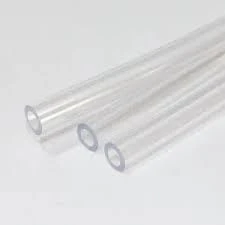Sep . 21, 2024 14:54 Back to list
hdpe plastic pipe
The Benefits and Applications of HDPE Plastic Pipes
High-Density Polyethylene (HDPE) plastic pipes have gained significant popularity in various industries due to their exceptional properties and versatile applications. Made from petroleum, HDPE is a thermoplastic polymer known for its high strength-to-density ratio and resistance to impact, chemicals, and UV radiation. These features make HDPE pipes an ideal choice for numerous functions, particularly in the fields of water distribution, sewage systems, and industrial applications.
One of the main advantages of HDPE plastic pipes is their durability. Unlike traditional materials such as steel or concrete, HDPE pipes exhibit remarkable flexibility and resilience under varying environmental conditions. This flexibility allows them to be installed in areas with shifting soils or in regions prone to seismic activity without the risk of cracking. Furthermore, HDPE pipes have a smooth inner surface, which reduces friction and leads to enhanced flow efficiency, minimizing energy consumption in pumping systems.
The Benefits and Applications of HDPE Plastic Pipes
The lightweight nature of HDPE makes transportation and installation easier and cost-effective. Since they are significantly lighter than metal or concrete pipes, they reduce transportation costs and can be easily handled on-site. Furthermore, the fusion welding technique employed in HDPE pipe installation creates a continuous, leak-free connection, reducing the risk of costly repairs and water loss.
hdpe plastic pipe

HDPE pipes are not only beneficial in terms of durability and installation but also offer excellent environmental benefits. They are fully recyclable, which means that at the end of their lifespan, they can be repurposed into new products instead of ending up in landfills. This recyclability contributes to a circular economy and reduces the overall impact on the environment.
In addition to water and sewage applications, HDPE pipes are extensively used in various other sectors. They are increasingly popular in gas distribution systems, where they safely transport natural gas and other fuels. HDPE is also utilized in agricultural applications for irrigation systems, providing efficient water delivery to crops while minimizing potential contamination.
The versatility of HDPE plastic pipes makes them suitable for an array of projects, ranging from household plumbing to large-scale commercial and industrial applications. Their longevity, low maintenance requirements, and cost-effectiveness make them an appealing option for many construction projects.
In conclusion, HDPE plastic pipes represent a significant advancement in piping solutions for numerous applications. With their durability, resistance to environmental factors, and recyclability, they not only meet the needs of modern infrastructure but also contribute positively to sustainability efforts. As industries continue to seek innovative and efficient solutions, the use of HDPE pipes is likely to expand, solidifying their role as a vital component in the construction and utility sectors.
-
Premium PVC Soft Sheets: Clear, Flexible & Durable
NewsAug.12,2025
-
Premium PVC Round Rods: Durable, Chemical Resistant, Easy to Machine
NewsAug.11,2025
-
PP U-channel: Chemical-Resistant, Lightweight & Durable
NewsAug.10,2025
-
Transparent PVC Pipe: Clear Flexible Tubing for Fluids
NewsAug.09,2025
-
Durable PP Rigid Sheet: Versatile & High-Quality Plastic Panels
NewsAug.08,2025
-
Premium Glossy PP Rigid Sheet – Durable & Versatile
NewsAug.07,2025

